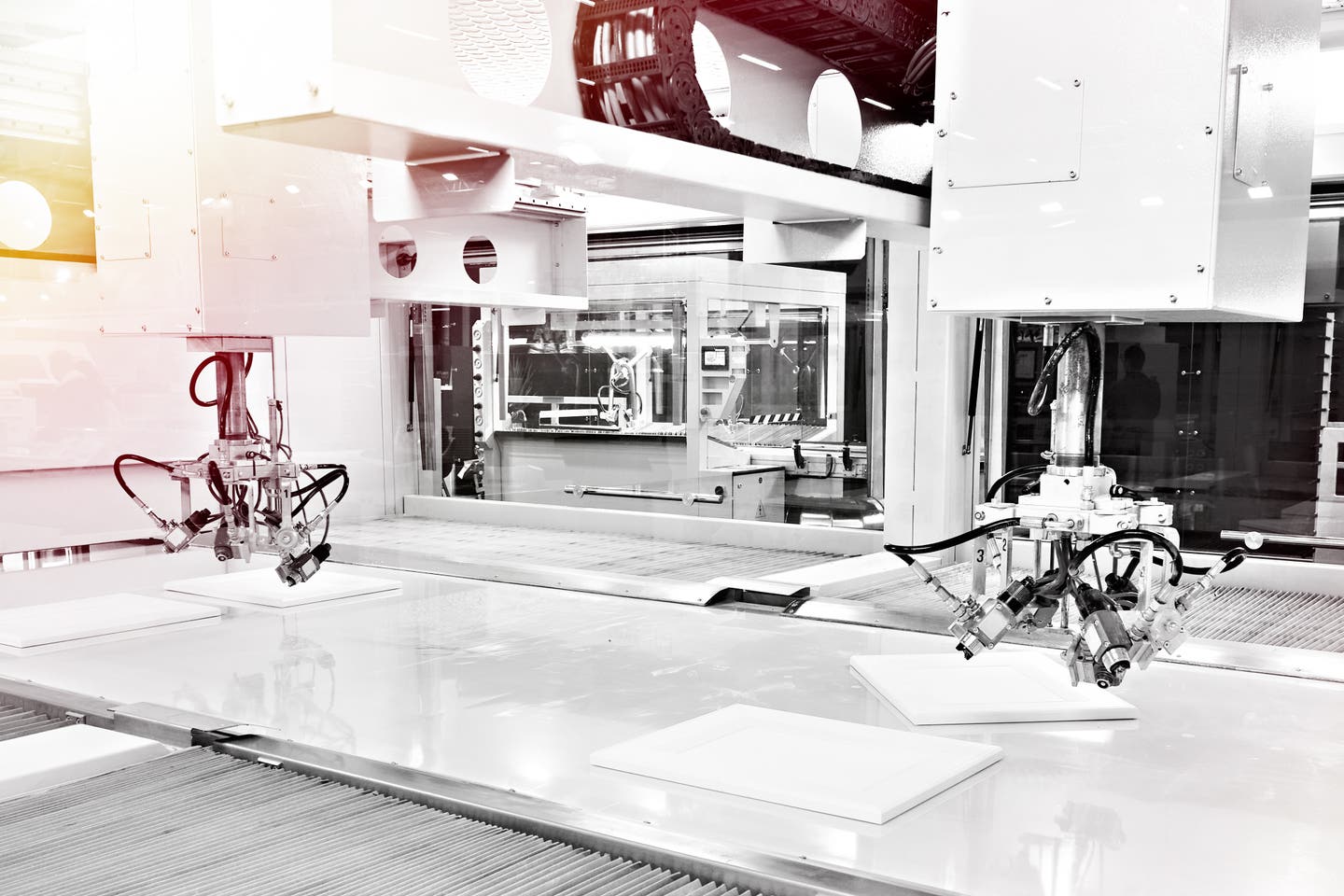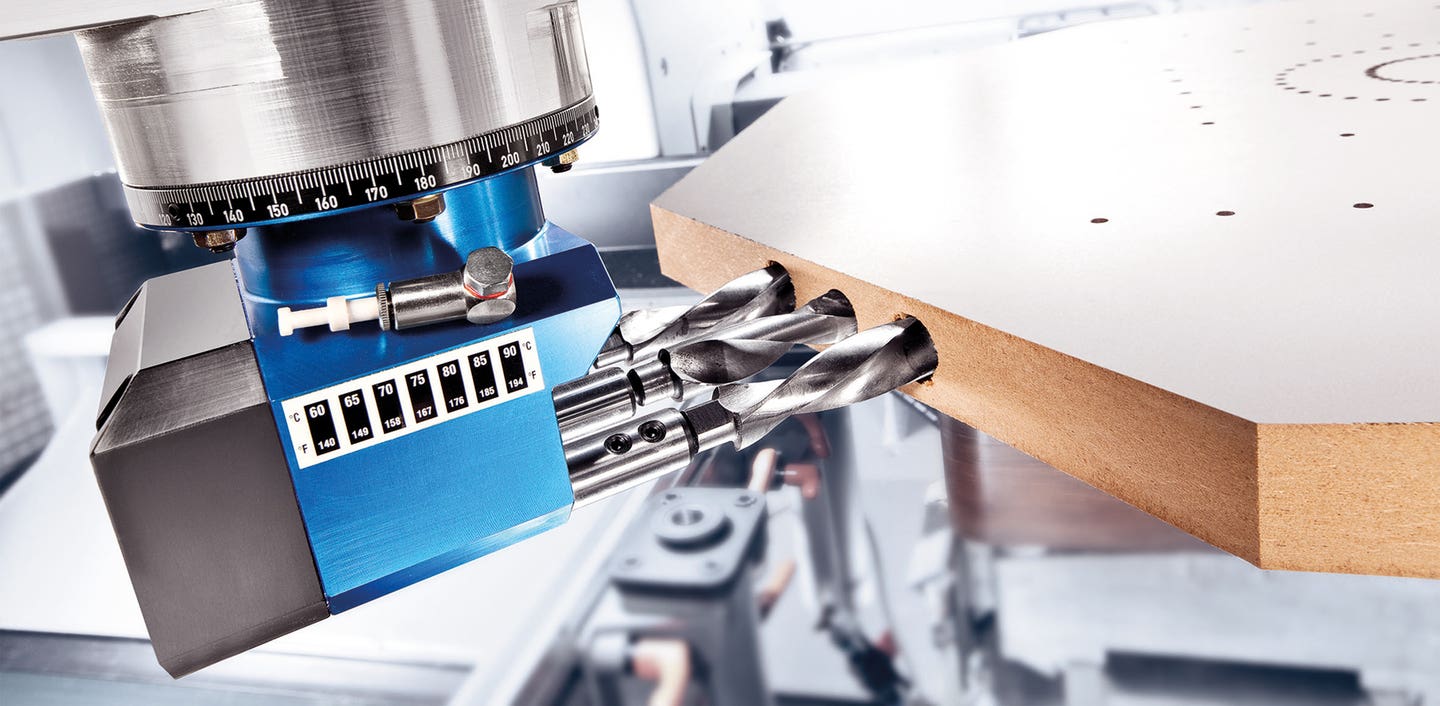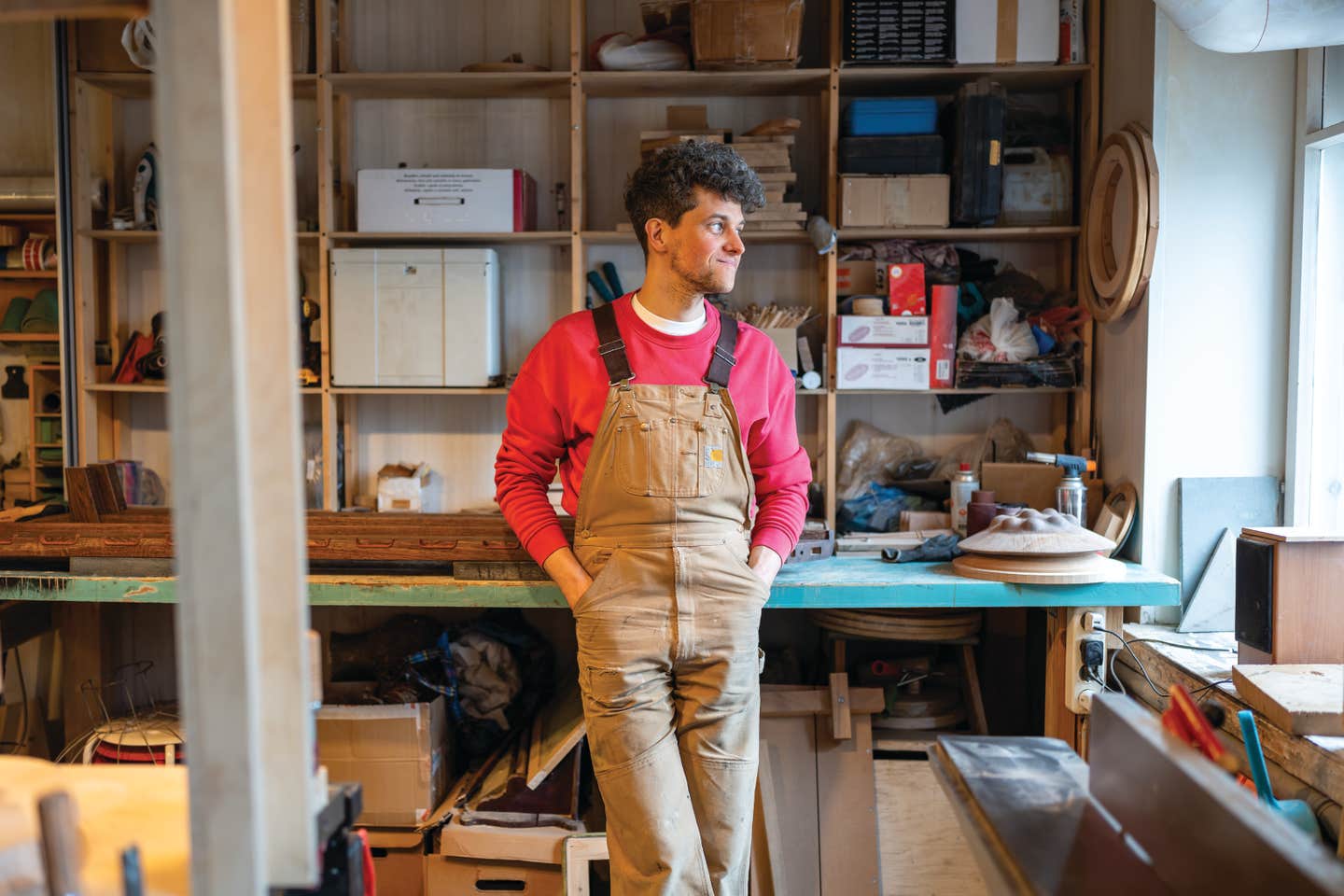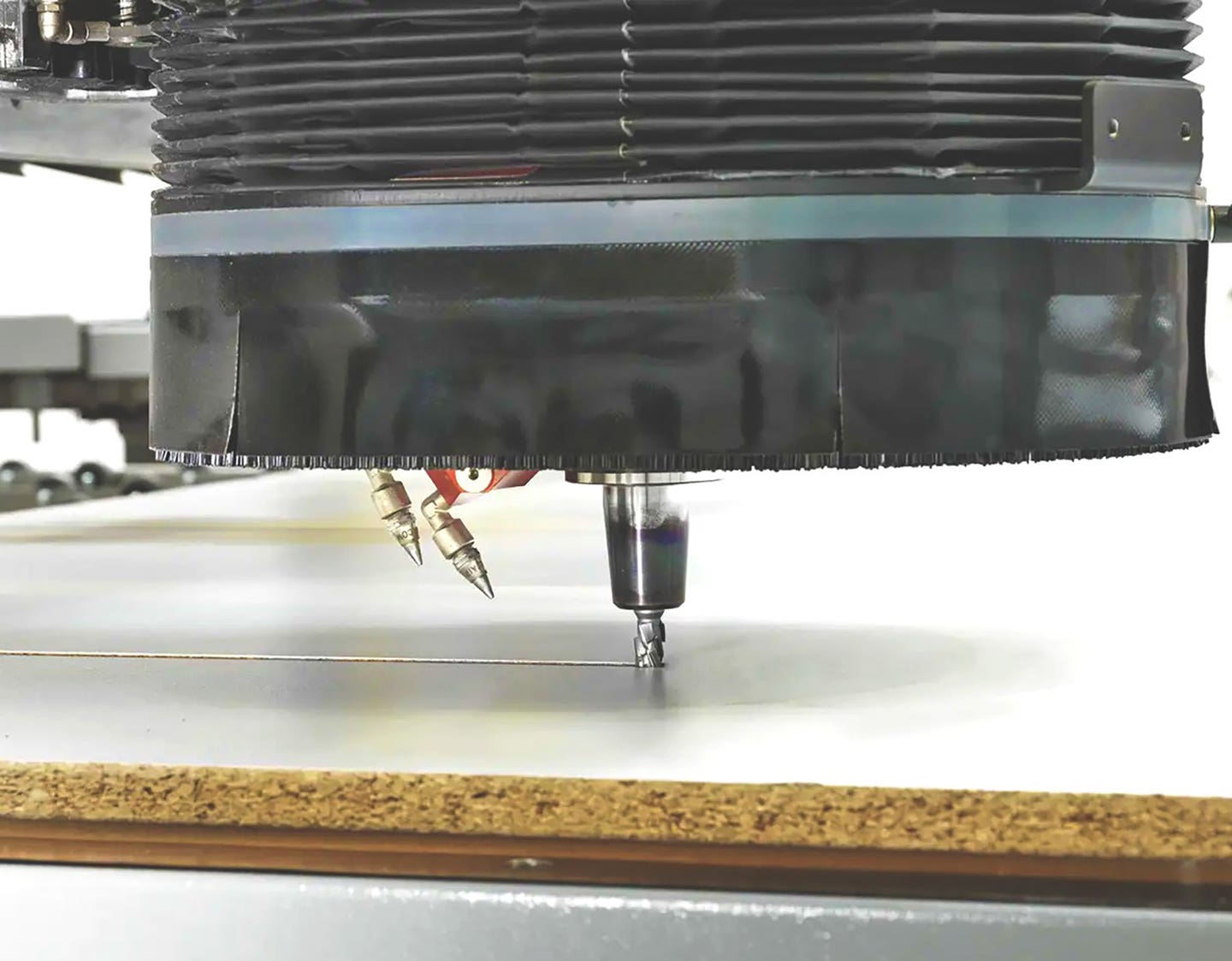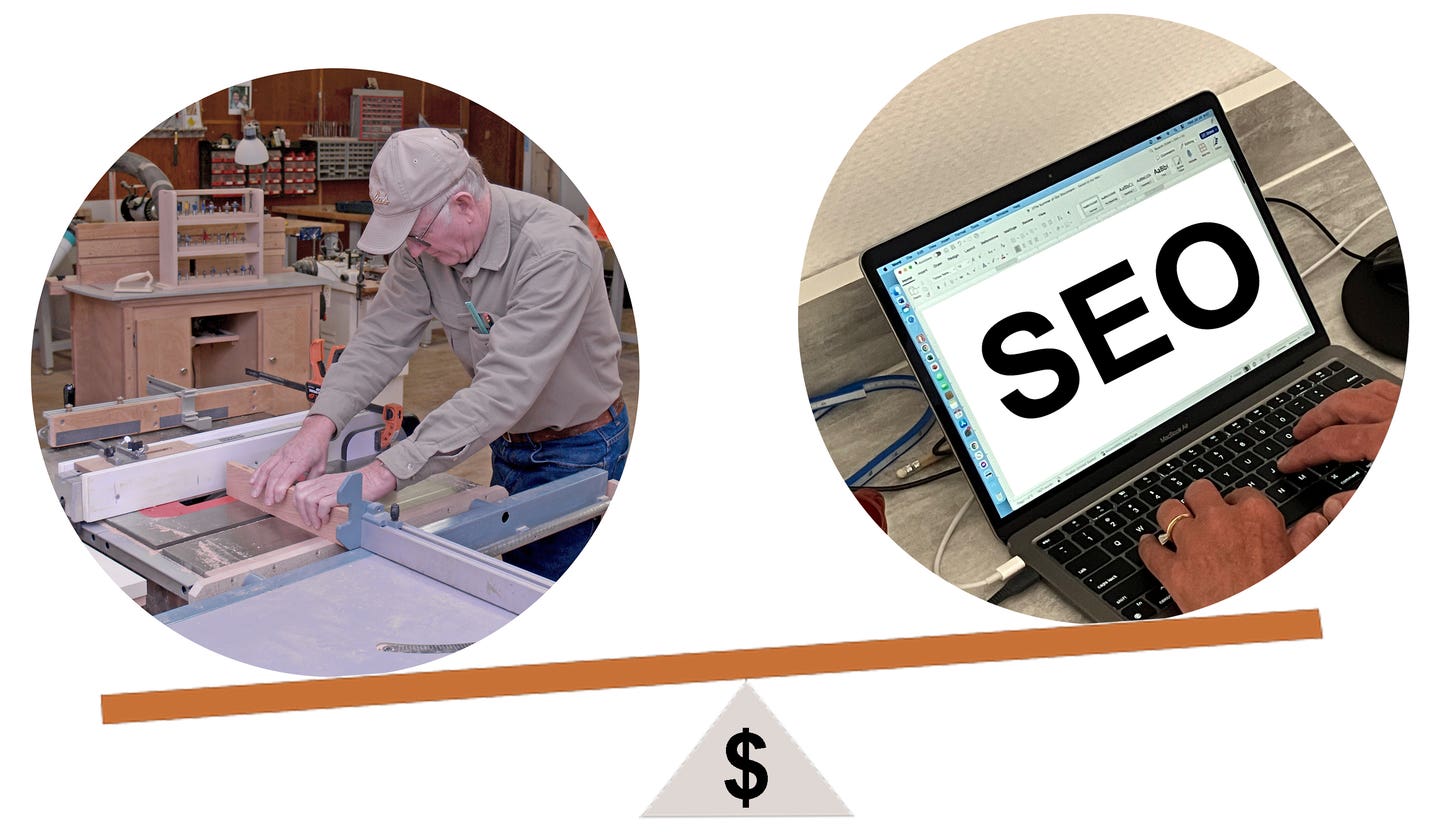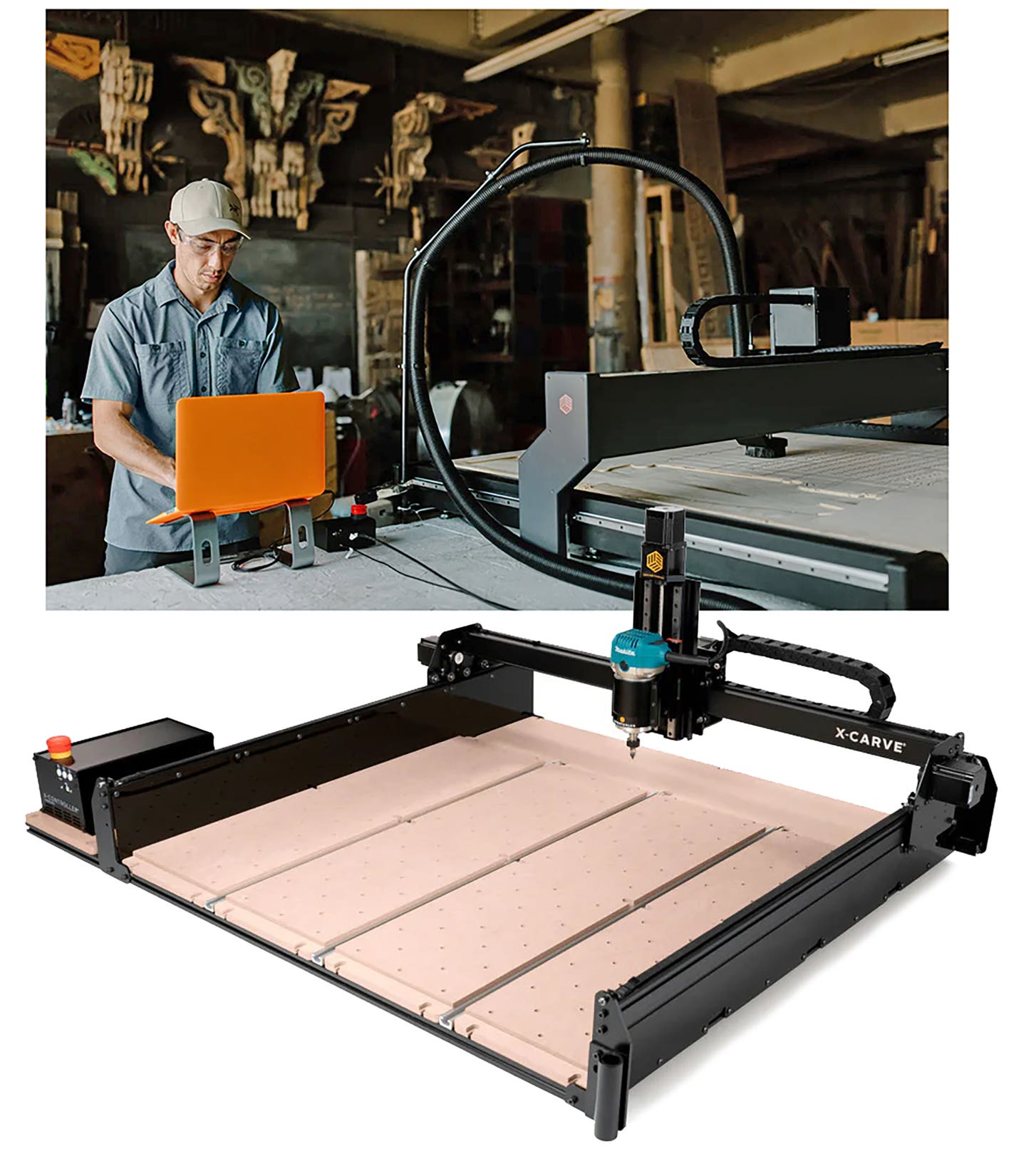Finding that magic number
Henry and Sara Leggett run Design Trifecta, a name chosen for their belief that a woodworking business needs three sources of income to operate successfully.
Henry and Sara Leggett run Design Trifecta, a name chosen for their belief that a woodworking business needs three sources of income to operate successfully. The San Francisco shop produces custom cabinetry, original furniture and a rotating magnetic knife block.
The knife blocks provide a somewhat steady income, averaging sales of one to five a day at base price of $299.
“It gives us a consistent revenue stream. Every month we get two checks from Amazon that covers our overhead. So, when we get a cabinet job, we see the profit,” says Sara.
But getting to this point meant facing a barrage of hurdles and challenges over the years that today can be chalked up to good old-fashioned learning experiences.
London called
Originally from England, Henry earned a Higher National Diploma from the London Guild Hall in 2002. Over the next two years, he worked as a carpenter in London’s Kings Cross area while earning a Master’s in Furniture design at the London Guild Hall which was in the process of merging with London Metropolitan University. By 2006, he found himself working in the picturesque English countryside of Cotswolds for Dominic Ash building high-end residential custom cabinetry.
“I didn’t see my future in woodworking when I was younger. I started doing IT work with computers, then went traveling. Then I decided to follow my passion for woodworking, which was much better for me, working with my hands,” he says.
Sara, who holds a business degree from the University of Puget Sound, and Henry married in 2007 and eventually moved to San Francisco, where Henry started working for Berkeley Mills, a high-end cabinet shop in Berkeley, Calif.
“What I picked up from them is they do super high-end Arts and Crafts furniture, but they also take advantage of high-tech CNC machinery and software even though they’re a small company. I worked in their kitchen department, but they made all types of furniture. I ended up being their project manager, coordinating between the design team and install team to improve efficiencies,” says Henry.
“While I was there I also got to learn about the systems they used for running their CNC. It was really interesting because they had an office where they were designing and doing everything on computers and someone operating the machine where it would come through really smoothly.”
After three years, Henry and another Berkeley Mills carpenter started a company called Barbary Coast Woodcraft, building and finishing custom cabinetry and kitchens for contractors. The venture lasted two years. Then, after a series of odd jobs, he co-founded Design Trifecta in a co-op shop.
“The other artists there were really highly skilled woodworkers,” says Henry. “Some were much older, and we’d learn off each other. It’s also nice to see people when you leave the house for the day. We got to discussing pricing, getting suppliers, and did some collaborations and projects, too.”
Sara also got the ball rolling by designing a first-class website. “We worked with clients to get Yelp reviews, posted to Etsy, Pinterest, Houzz, Instagram, Facebook, anything we could do to try and get more business. Of course, none of these made a huge difference on their own but having a deep web presence is important so now when people look for Design Trifecta we are everywhere,” she says.
“We applied MBA business principles to Henry’s woodwork and as a result steered away from customer direct sales. Just finalizing design plans, materials, finish, etc., took weeks of labor that our clients now pay interior designers to do.”
With regular custom cabinetry work from a couple contractors, they added the magnetic knife block, which displays and secures the knives for convenient access. The prototypes and necessary parts were funded through a Kickstarter campaign. Then, they bought a ShopSabre CNC.
“We were still in the co-op space and had no idea where we would put it,” Henry admits. “We were able expand into a neighboring space.”
The big break
With a product to move, they exhibited at the International Housewares Show in Chicago. “We went with six knife blocks and a prayer,” says Sara. “We were advised to take advantage of everything offered to first-time exhibitors and did. We signed up for every contest and award. We were in a new product showcase and got on a local morning television show the first day.
“America’s Test Kitchen stopped by and said they were testing knife blocks. They brought the product and said they couldn’t tell us more. Other than that, we didn’t sell anything. We met with big companies but for what they wanted to pay us, the margins weren’t there.”
Then, an endorsement from Cooks Illustrated helped move about 100 knife holders in two months.
“It’s been really consistent ever since and we sell on Amazon direct and that’s how we’re able to make a quality product and make money,” says Sara.
It hasn’t all been smooth sailing. Knockoffs have been a problem. “Companies cheat around our trademarks and patents, but their product is not the same,” says Henry.
The couple has bought commercial property in Kitsap County, Wash., where they will build a new shop.
“We’ve run out of space, so we bought land and we’re moving up to Washington state on the other side of Puget Sound from Seattle. It’s close to a major market. The Seattle market is growing and there’s lots of building happening,” says Sara.
Contact: Design Trifecta, 1785 Egbert Ave., Unit B, San Francisco, CA 94124. Tel: 425-306-9676. www.designtrifecta.com
This article originally appeared in the August 2018 issue.


